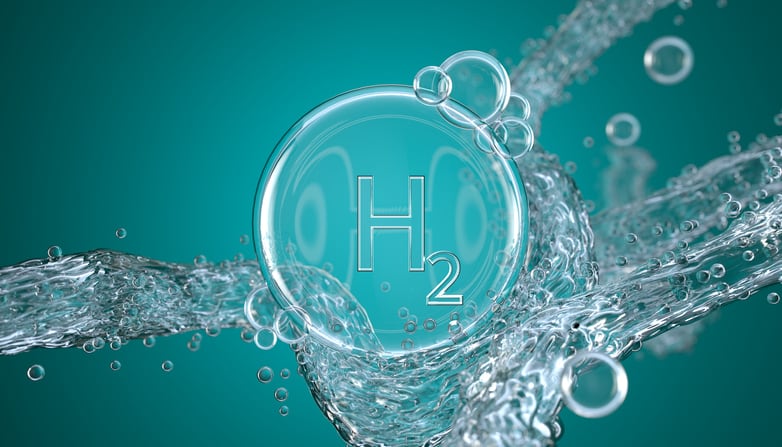Market researcher Euromonitor has unveiled the five tech-driven trends that will redefine commerce the most this year. It has identified there are now 4.7 billion internet users globally: around 60% of the world’s population. Some 89% of industry professionals surveyed by Euromonitor expect consumers will judge their company on its digital prowess post-pandemic. That puts the onus more than ever on companies to stay on top of digital trends.
Predictive personalisation
With consumer perception of loyalty in flux, those companies who amass the most useful data and leverage it to the maximum benefit are best positioned, revealed Michelle Evans Global Lead, Retail and Digital Consumer Euromonitor International.
“Consumers are seeking more value from relationships,” she said. “We also see the notion of reward is evolving. At the same time, people are more digitally savvy, leading to increased expectations. Fortunately, there’s more data, and more types of data that retailers, brands and hospitality operators can use to not only get more personal but also more predictive.”
Loyalty is different today, she explained, and ‘next-gen loyalty’ will evolve from points to personalised experiences.
Branded digital ecosystems are one tool in these customer retention efforts. Companies should pursue new business models which help create stronger relationships with end consumers, she added. These are important retention tools and also a vital source for data.
“Companies must shift from reactive to predictive customer strategies,” she noted. “AI is going to be at the centre of these efforts, not only because it successfully enables companies to comb data to offer greater personalisation. But it’s also critical in empowering both real time and even predictive strategies.”
Faster times are needed in the last-mile delivery sector
More of us are ordering food and groceries for home delivery but as we become more familiar with it, expectations are changing rapidly particularly regarding delivery times, and reducing these times will be key for growth in this category.
The share of digital consumers reporting that food and beverage constitute a typical online purchase increased from 48% to 54% from 2020 to 2021, reported Euromonitor. But 42% of global digital consumers also complain about longer than expected delivery times.
We can therefore expect further transformation in this space, declared the market researcher. Take US company GoPuff, which has built its success on rapid delivery of convenience store fare. Today it operates nearly 600 of its own hyperlocal ‘dark stores’, or distribution centres that caters exclusively for online shopping. In November 2021 it expanded into 12 urban areas in the UK.
The Euromonitor analysts expect legacy retailers will build ultrafast delivery infrastructure of their own. This will result in further disruption for convenient stores corner stores and other smaller retailers who sell many of the same products in which the ultra-fast players specialise. The viability of current labour practices too will be tested as consumer expectations around delivery times get more demanding.
Dark stores will be the way of the future, declared Euromonitor Consultant Bob Hoyler, “spawning a new battle for real estate to house inventories which can house items that can be delivered to consumers in a matter of minutes”.
The type of food and groceries ordered for quick home delivery will also mature. With ultrafast delivery times now attainable in many cities, urban consumers can utilize the internet to make what are in effect impulse purchases. “Consumers will use ultrafast delivery to bring back impulse purchases,” said Hoyler, “in much the same way that they would have picked up a candy bar or soft drink in the store in the past.”
Green E-commerce and the tension between convenience and sustainability
But the environmental impact of surging e-commerce sales is colliding with rising sustainability concerns among consumers, observed the market researcher, and amid the inevitable shift towards e-commerce, companies find themselves under pressure to implement green solutions too.
As a consequence of the rise of last-mile delivery, for example, online players will be under increased scrutiny to make products, packaging and delivery more sustainable as consumers demand green commerce, predicted Euromonitor Consultant Maxim Hofer. “We’ve seen 60% value growth of good e-commerce globally between 2021 and 2026. At the same time 65% of global digital consumers indicate they are worried about climate change,” he revealed. That illustrates that companies will need to embrace more sustainable business models, he said. Early movers will have an advantage of a low environmental impact.
By way of an example, in 2021 Deutshe Post DHL Group in Germany announced significant investments to accelerate the electrification of its last mile delivery fleet. The company expects it can strengthen its last mile position by transitioning early to emission free deliveries.
“We have seen that consumers will increasingly look towards green e-commerce as solution to the tension between online purchases and sustainability,” Hofer stated. “In combination with increasing climate regulation, an accelerating transition towards green-ecommerce looks inevitable and it will require brands, retailers and others to make strategic adjustments.”
Pickup perks
A greater share of consumers are expected to opt for click and collect in the future, believes Euromonitor. “Delivery has long been the default fulfilment message for many consumers,” explained Hoyler. ”But as e-commerce accelerates click and collect is becoming a popular alternative as it combines the convenience of online ordering with the immediacy and instant gratification of picking up an item from a physical outlet.”
Click and collect is also potentially cheaper for consumers and is a greener option too, helping operators reduce both emissions and the need for additional packaging.
Into the metaverse – taking online shopping to the next level
With consumers likely to demand more substantive immersive experiences, virtual technology has the potential to take online shopping to a new level, and can potentially create a more ‘holistic’ online world, said Evans. “The metaverse combines several emerging technologies including virtual reality headsets, social media, live streaming, crypto currencies and gaming platforms,” she explained. “This advancement will become more important as the purpose of channels evolves.”
For example, historically consumers visited stores to ‘truly’ shop: a leisure activity where browsing was as much the point as any purchase. Digital channels, in contrast, served only solely transactional role. But as ecommerce expands, consumers will be going online to not only execute purchases but to shop as well.
Its technology that’s becoming interwoven into people’s everyday lives, observed Evans. “These platforms offer an opportunity to engage with loyal audiences,” she said. “As the metaverse comes to the forefront, small and big brands are exploring how they can make money.” And as with any new technology, those who are among the first to identify its value will reap the greatest rewards. “The year 2022 will be for the frontrunners, but soon all brands will need a metaverse strategy,” she added.




